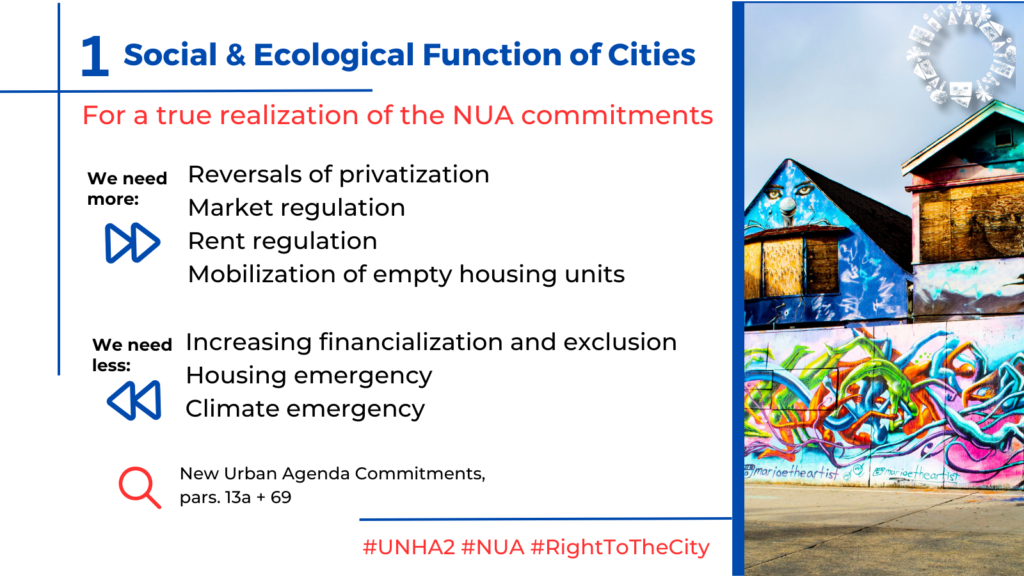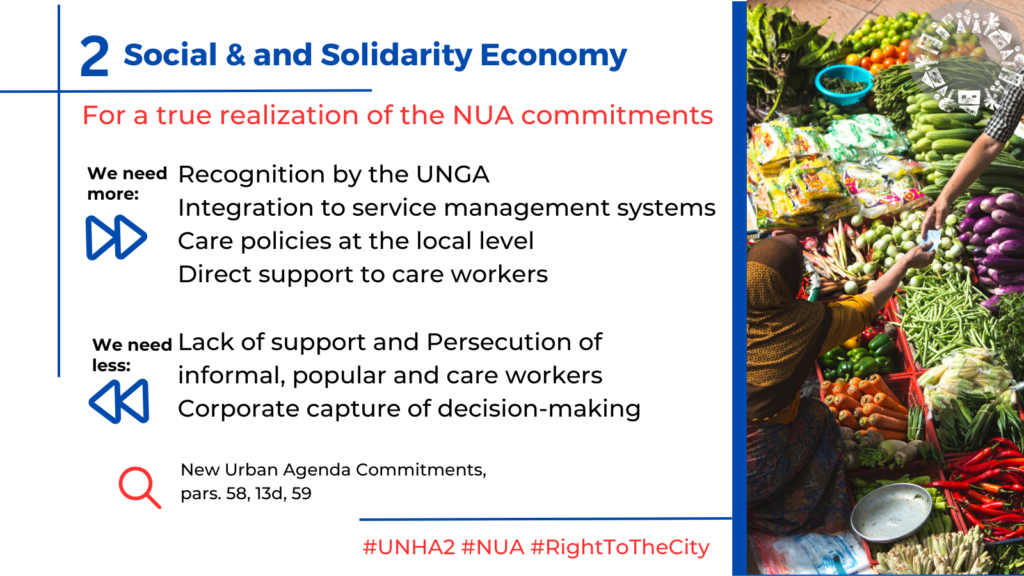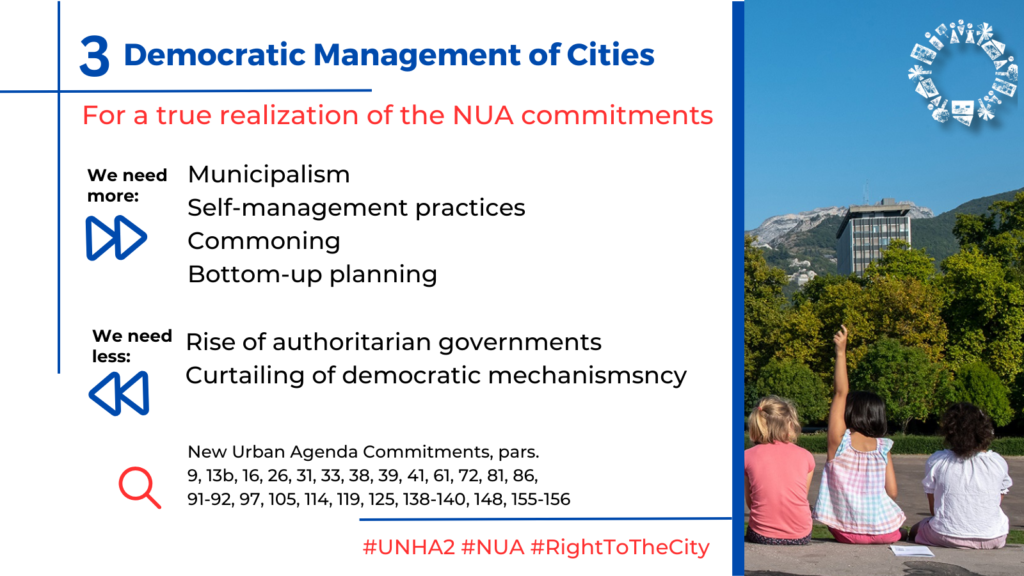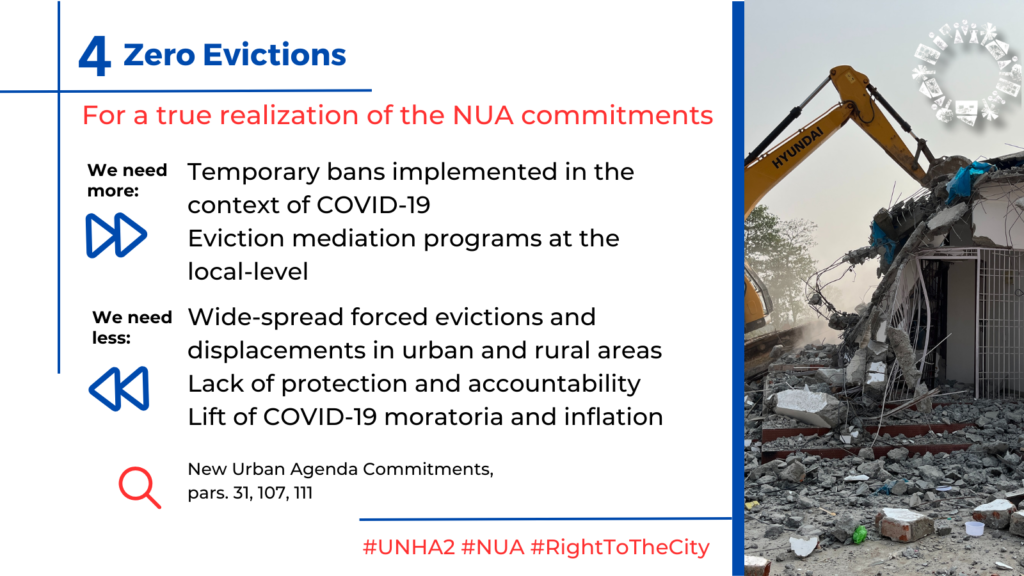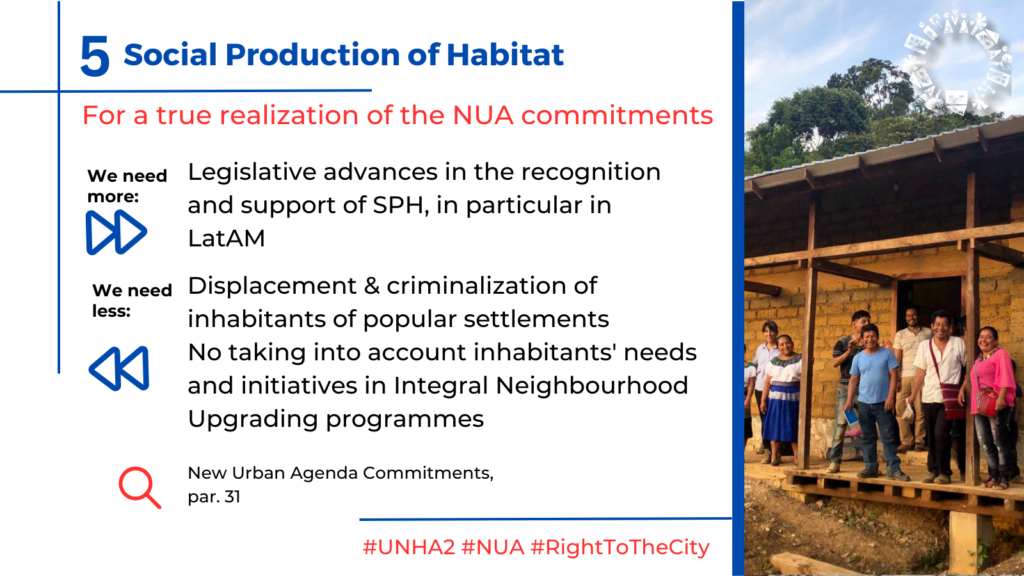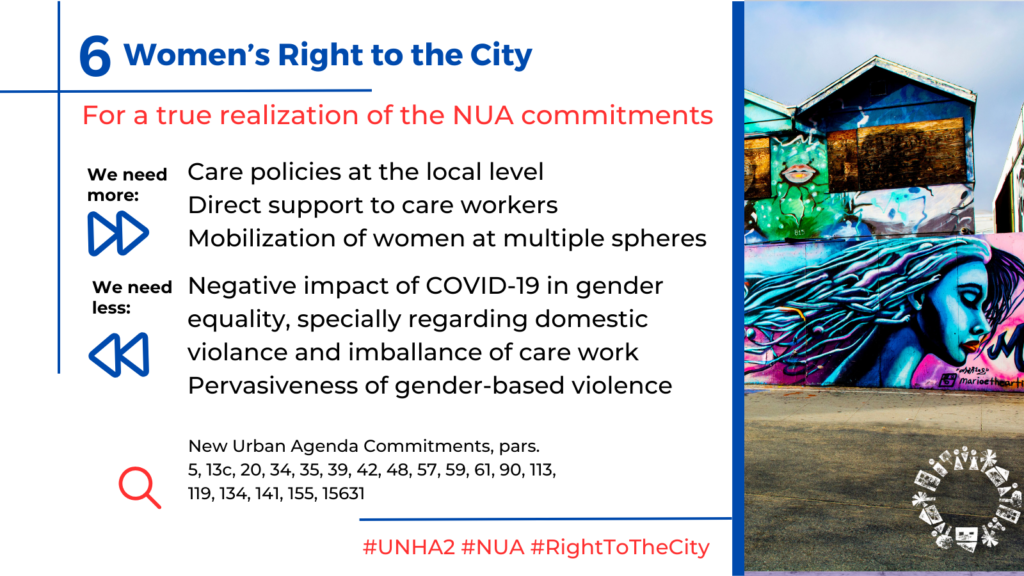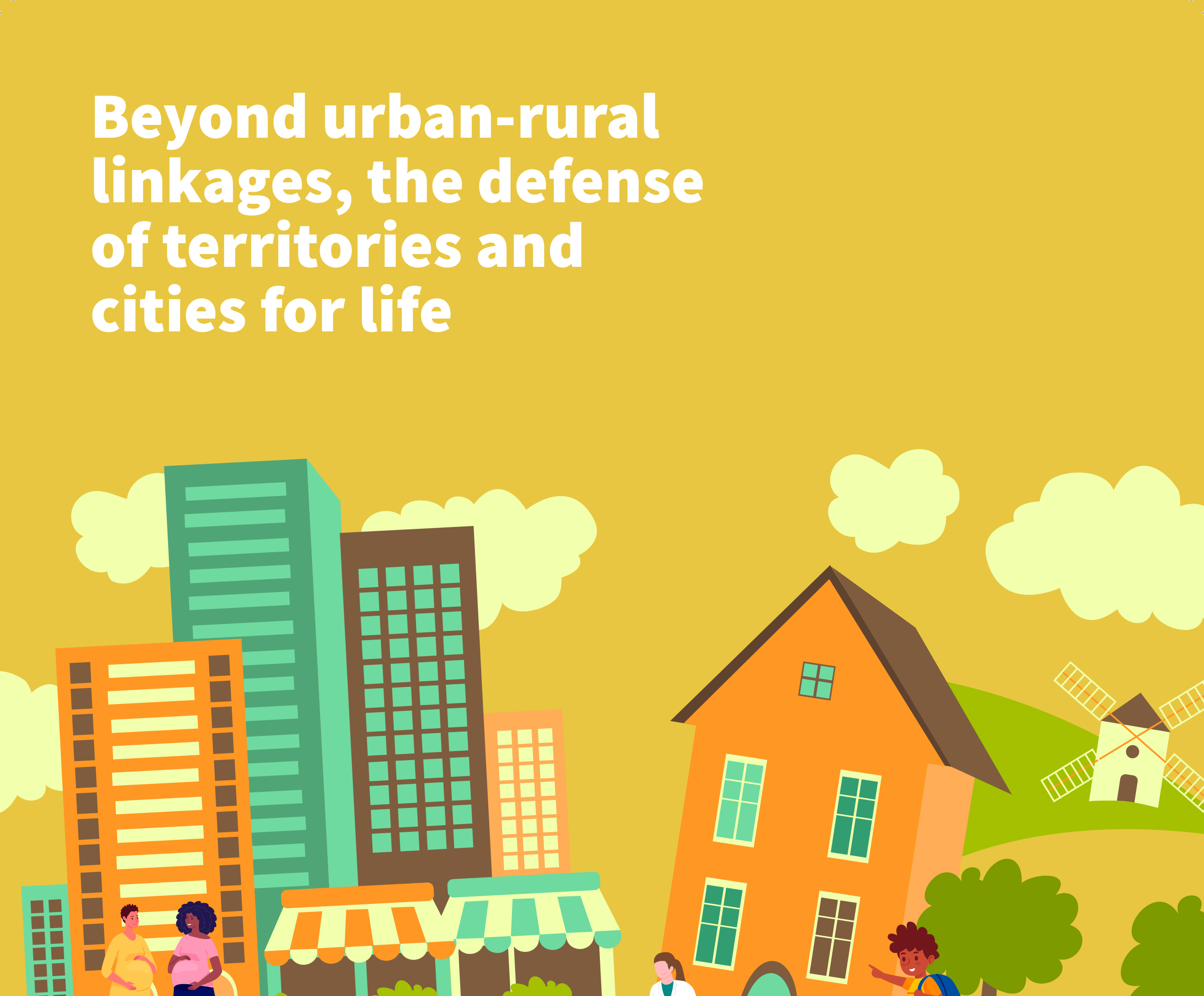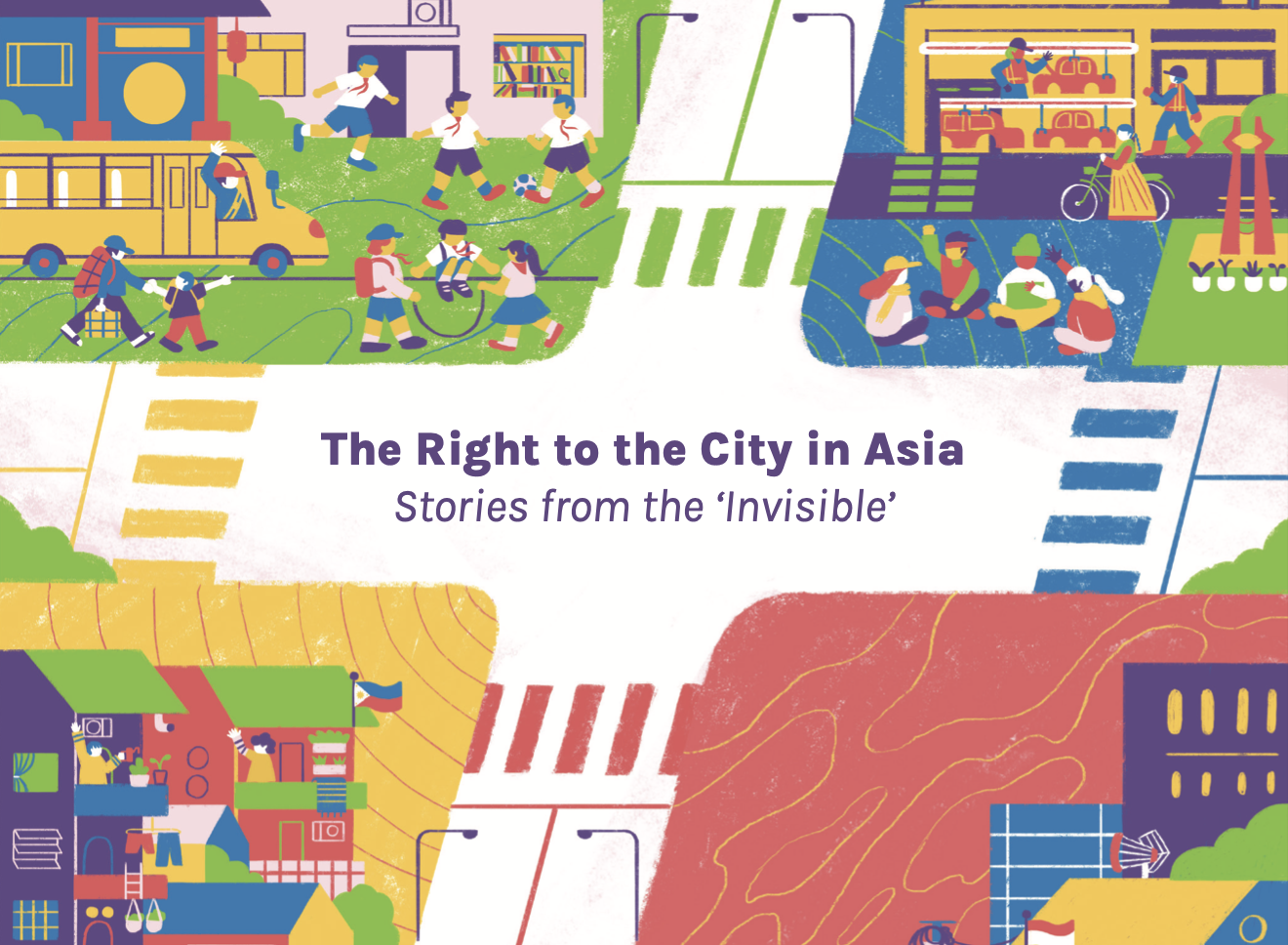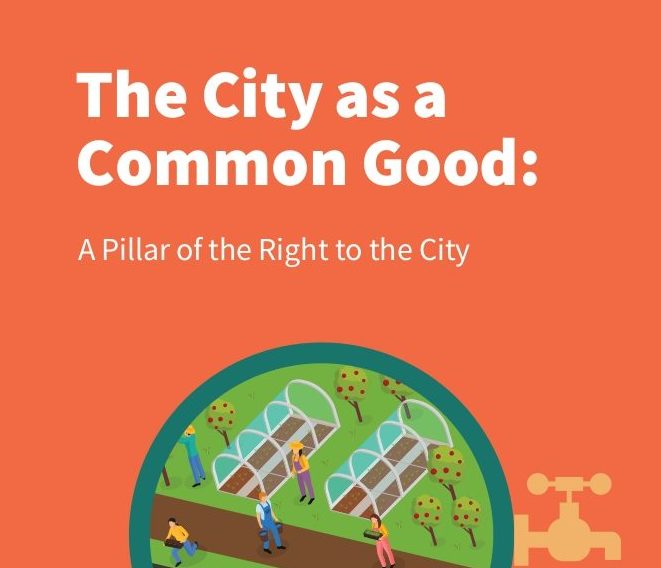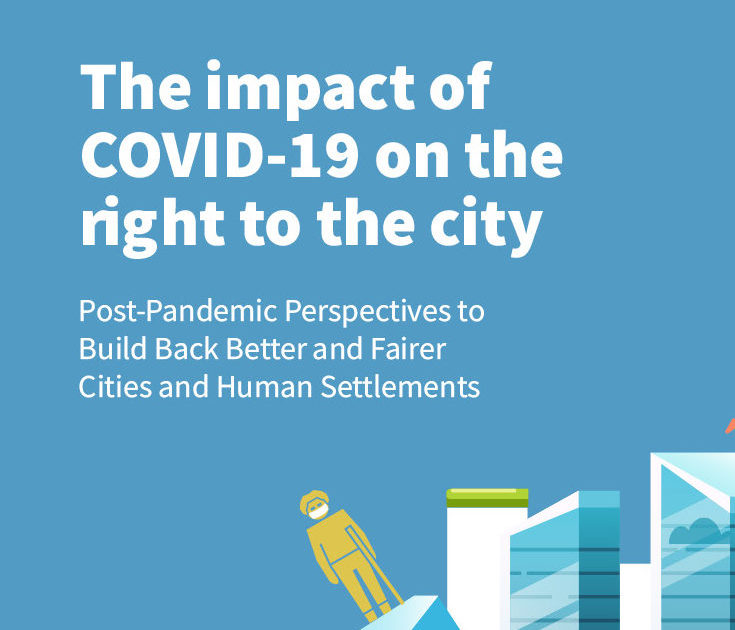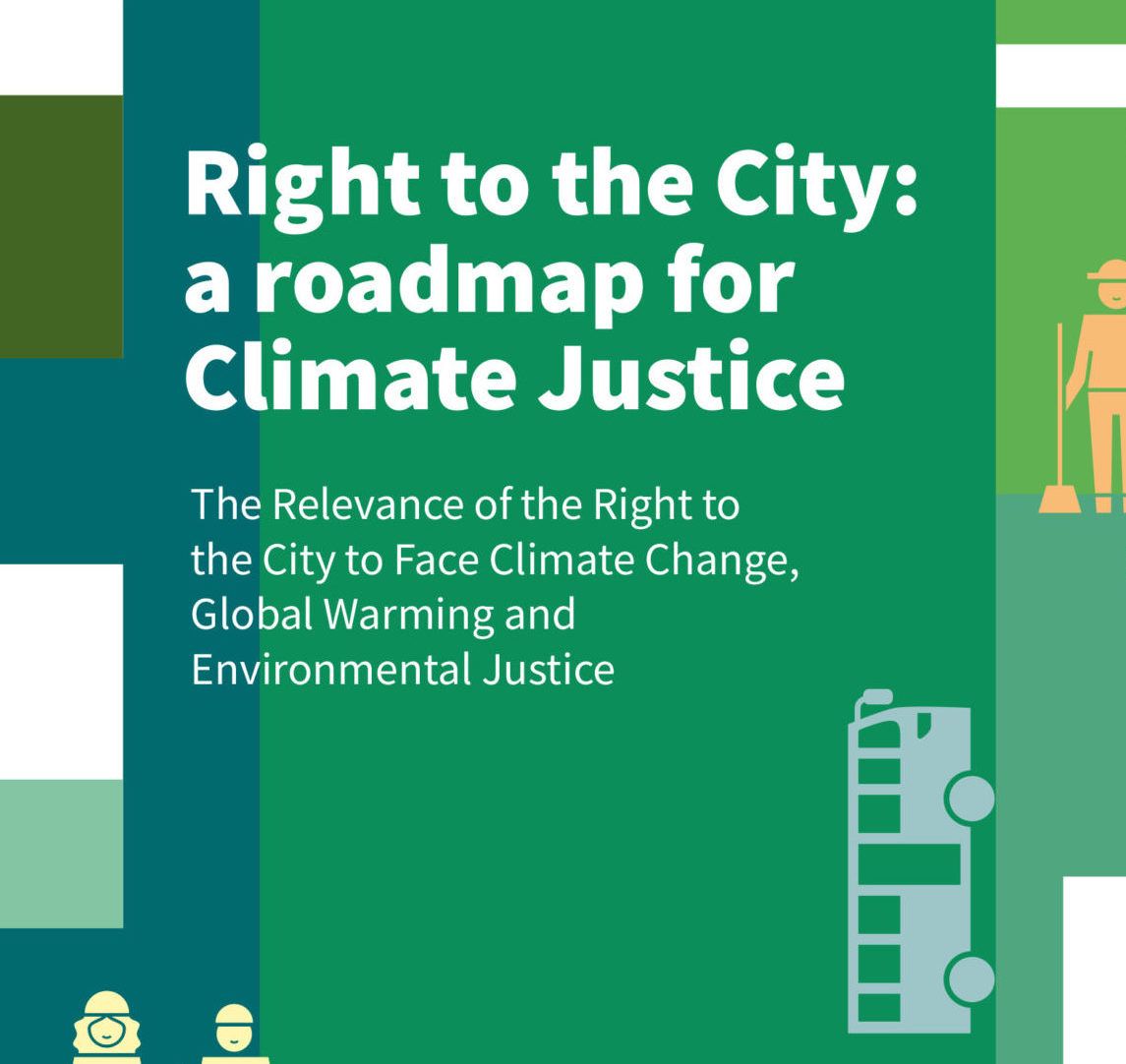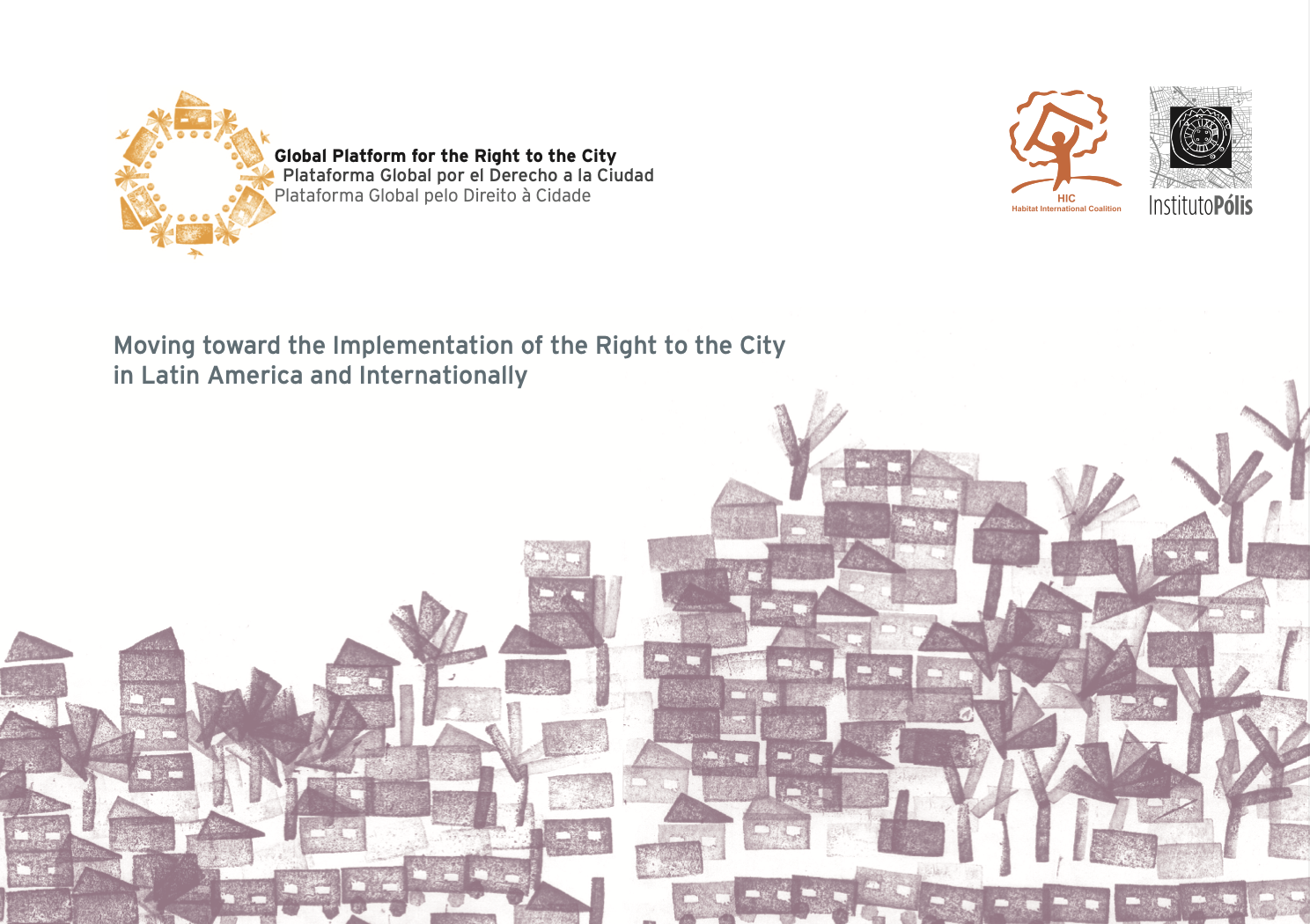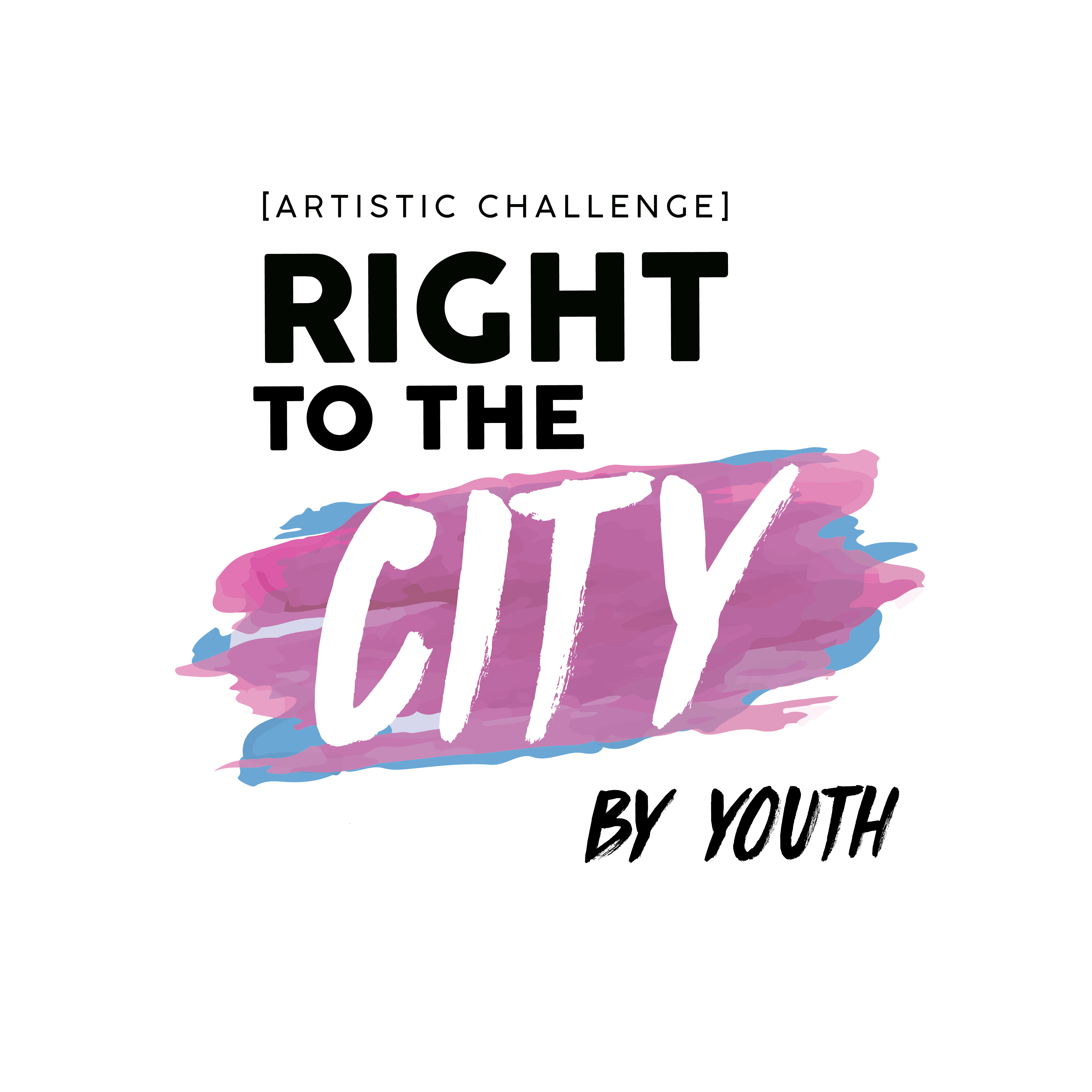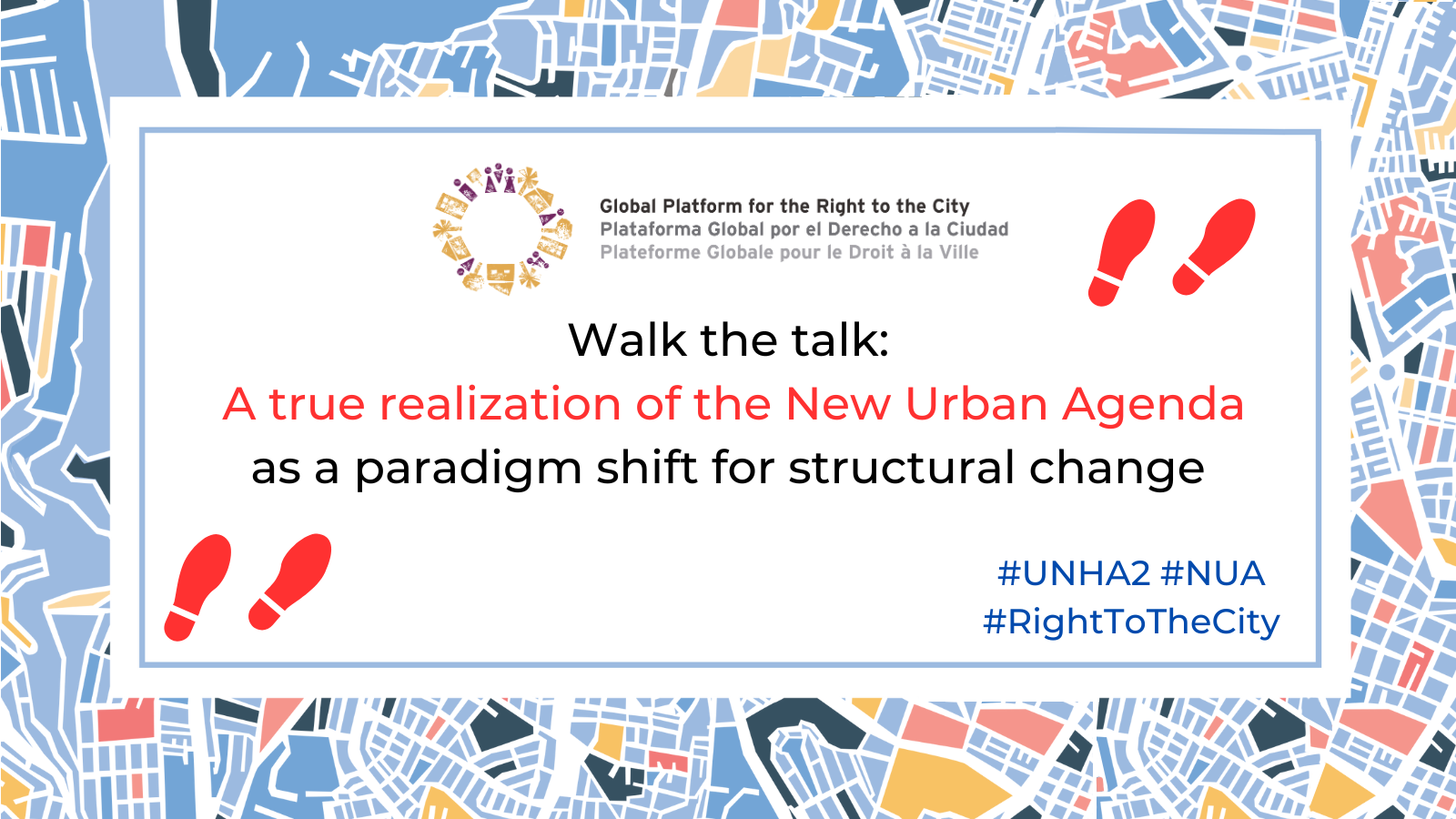
The Global Platform for the Right to the City (GPR2C) Members and Allies will be in Nairobi to actively participate in the second session of the United Nations Habitat Assembly ( 5 to 9 June 2023), to call on UN Member States and UN-Habitat to accelerate the implementation of the NUA, with the Right to the City as a guide; support civil society organizations and local governments as key actors for the implementation of the NUA and a engage in a truly participatory evaluation of UN-Habitat’s strategic plan.
Collective Statement
How to advance the NUA
Collective
Side-event
About the UN-Habitat Assembly
Collective Statement
Walk the talk: a complete realization of the NUA commitments for structural change
As UN-Habitat and member countries gather to agree on strategies to leverage the current and upcoming UN-Habitat strategic plans, we urge them to focus on concrete action paths anchored in the NUA key commitments. We call them to:
- Commit to an accelerated implementation of the New Urban Agenda, leveraging the Right to the City as a driver for its realization, agreeing on concrete mechanisms for enshrining NUA commitments towards the transformation of urban and economic development models, with the central commitment of protecting the social and environmental function of territories, supporting community-led and social and solidarity initiatives and programmes, as well as advancing the democratic management of cities and territories through inclusive participation and collective decision making;
- Recognise and support local governments and civil society and community-based organizations as key stakeholders for NUA monitoring and effective implementation, building upon the transformative initiatives being driven by such actors, considering the city as a not-for-profit common good whose management must include the active involvement of the entire social fabric, promoting direct participation to incorporate the priorities, knowledge and practices of those directly affected by projects and policies, such as in the case of the proposed “Global Action Plan for transforming informal settlements and slums;
- Engage in a truly participatory assessment of the UN-Habitat strategic plan, supporting the participation of civil society, local and regional governments, and other stakeholders through a democratic, inclusive and self-organized Stakeholder Engagement Mechanism consistent with best practices across the UN System. This envisions UN Habitat, governing bodies and all relevant stakeholders advancing policies that lead to actions that support the transformative initiatives being led by those actors, under the principles of decentralization and democratic management of territories. This includes enhancing the people-centered approach by operationalizing the NUA principles and commitments with a comprehensive monitoring and evaluation framework, in stark contrast with the current reality of limited channels for participation in the monitoring framework. These measures would enable concrete action toward realizing the preventing and remedial purposes of human rights in the territories, considering the intersectional aspects of urban inequalities and the disaggregated and qualitative monitoring indicators to better address just and sustainable development of human settlements across the human habitat.
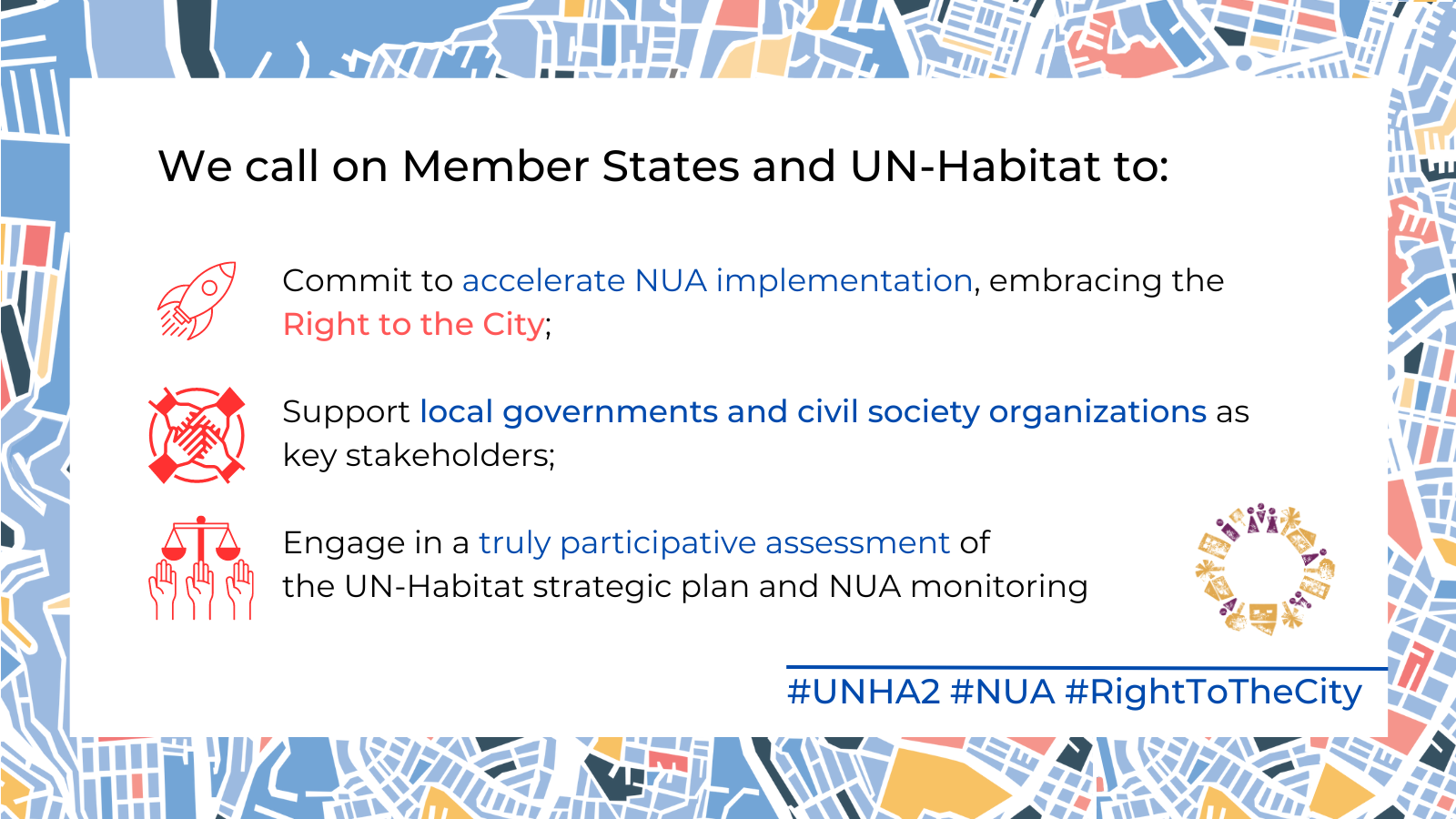
Support the Statement and Join the Global Campaign
Principles to guide the advancement of NUA commitments
The Habitat III process reflected the deliberation of various actors to collectively commit to actions that make our cities, villages, territories and human settlements more just, inclusive, safe and sustainable. Key issues emerged toward the adoption of the New Urban Agenda (NUA), in particular regarding the respect, protection and fulfillment of human rights under the umbrella of the Right to the City, including women’s full and effective participation and equal rights; combating and preventing speculation, displacement, homelessness and forced evictions; ensuring the social and ecological functions of housing, land and the city; the need to further decentralize decision-making and resource-allocation processes; the recognition of cities as common goods; and the democratic management of cities and territories through more participatory and inclusive approaches, such as the social production of habitat.
Collective Side-Event
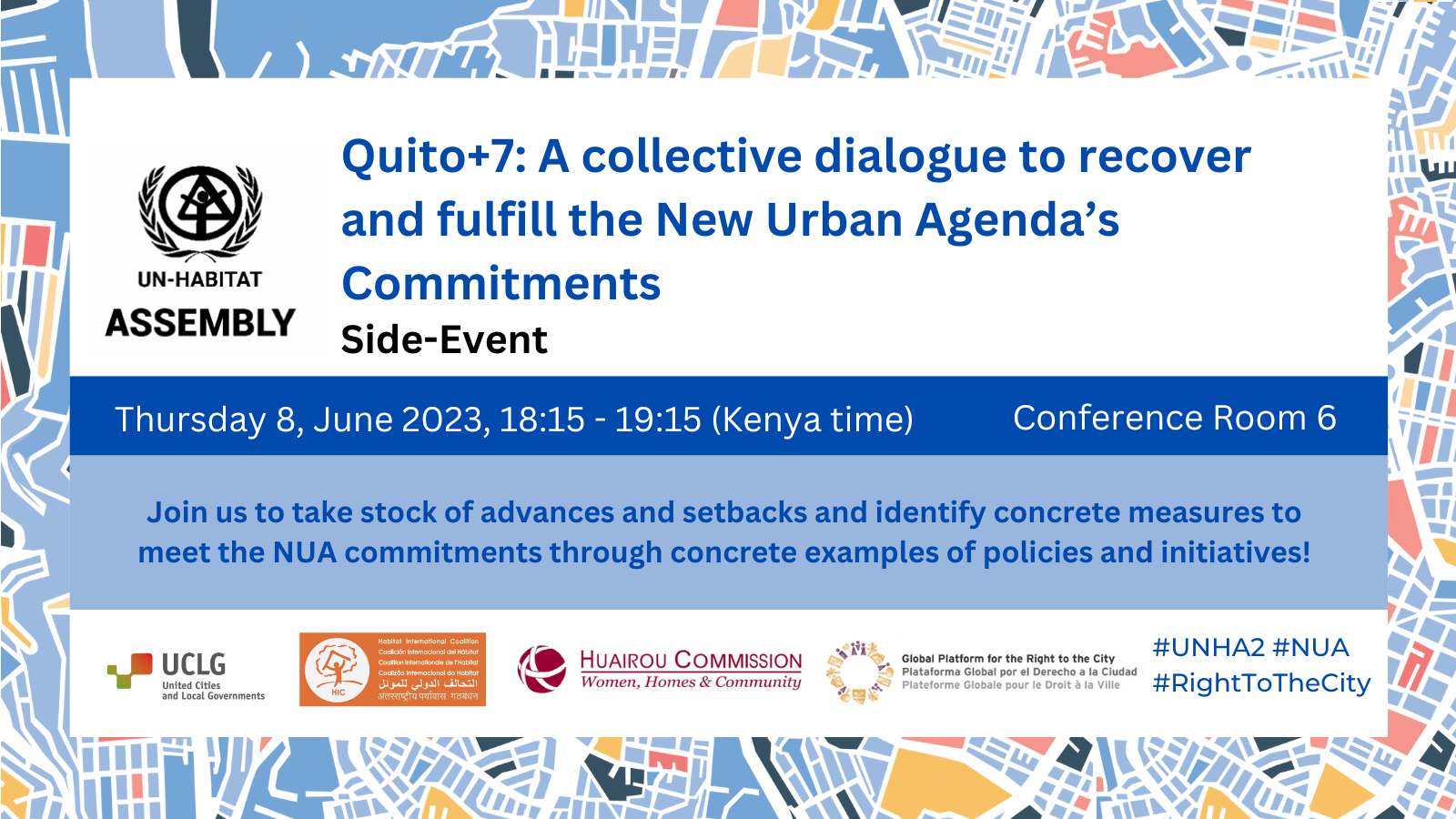
This event will take stock of how the implementation of the NUA has advanced and what is yet to be realized. A multi-stakeholder panel will focus on pathways to operationalizing NUA commitments through concrete examples of policies and initiatives. In this year that will see the mid-term review of the 2030 Agenda at the SDG Summit and the development of UN-Habitat’s next strategic plan, the panel will renew a multi-stakeholder commitment to implementing the NUA principles and commitments and identify concrete steps to localize its implementation.
Under the framework of the UN-Habitat Assembly, the United Cities and Local Governments (UCLG), Habitat International Coalition (HIC), Huairou Commission and the Global Platform for the Right to the City (GPR2C are organizing a side event to take stock of how the implementation of the NUA has advanced and what is yet to be realized. A multi-stakeholder panel will focus on pathways to operationalizing NUA commitments through concrete examples of policies and initiatives. In this year that will see the mid-term review of the 2030 Agenda at the SDG Summit and the development of UN-Habitat’s next strategic plan, the panel will renew a multi-stakeholder commitment to implementing the NUA principles and commitments and identify concrete steps to localize its implementation.
Date: 8 June, 18:15h – 19:15h (Nairobi time)
Location: Conference Room 6 at the UN-Habitat Headquarters in Nairobi (Parklands/Highridge, United Nations Ave, Nairobi, Kenya)
The event will be in person only, but stay tuned to our social media where we will share the main points of the dialogue. These conclusions will serve as a basis for our participation in the HLPF and SDG Summit.
About the Second UN-Habitat Assembly

The second session of the United Nations Habitat Assembly will be held from 5 to 9 June 2023 in Nairobi. Kenya. The theme of the session is “A sustainable urban future through inclusive and effective multilateralism: achieving the Sustainable Development Goals in times of global crises.”
UN-Habitat Assembly is a universal body composed of the 193 member states of the United Nations and convenes every four years (A/RES/73/239). The first Assembly was held in 2019.
The responsibilities of the UN-Habitat Assembly are:
- Identify key issues and areas of focus for the normative and policy work of UN-Habitat;
- Review major trends related to human settlements and urbanization;
- Examine global norms and standards in human settlements and sustainable urbanization;
- Adopt resolutions, declarations, recommendations, formal decisions, reports and other documents pertaining to strategic vision and political guidance in accordance with its mandate;
- Recommend strategies for coherent implementation of urban and human settlements dimensions of the 2030 Agenda, the New Urban Agenda and other global agendas, including of the work of the United Nations System;
- Examine and approve UN-Habitat’s strategic plan, to be prepared by the Executive Board;
- Review the Secretary-General’s quadrennial report on the implementation of the New Urban Agenda.
In addition, the Assembly should also ensure the active engagement of local authorities and other stakeholders in the Assembly, in its subsidiary bodies and in intersessional meetings.
The GPR2C and its members participated in the first edition of the Assembly (2019). More information here.
Background documents
- Draft programme
- Deatiled programme
- Report by the executive director on NUA implementation
- Urban Monitoring Framework
- Quadrennial report of the UN Secretary-General on NUA implementation
More information and further documents, such as the resolutions presented by States can be found at the Official UN Habitat website


